You are here
New Releases
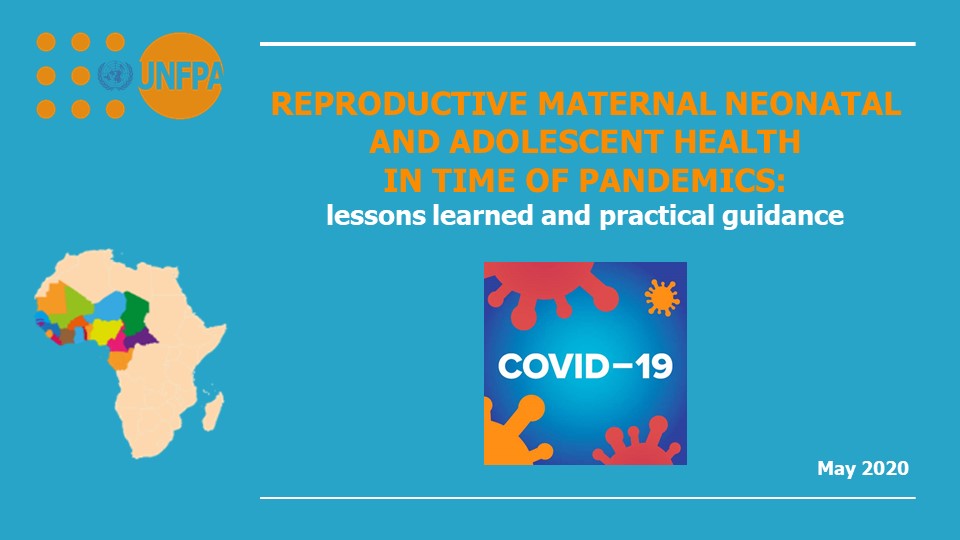
Reproductive maternal neonatal and adolescent health in time of pandemics: lessons learned and practical guidance
The review draws out lessons learned from 20 years of major epidemics since 2003, including SARS-CoV, HIV/AIDS, Ebola, Zika and MERS-CoV. The findings noted that responses to such outbreaks had hurt maternal, reproductive and child health services. Recognising how, and how much, epidemics affect women, children, and other vulnerable populations is crucial if nations are to create effective and fair responses
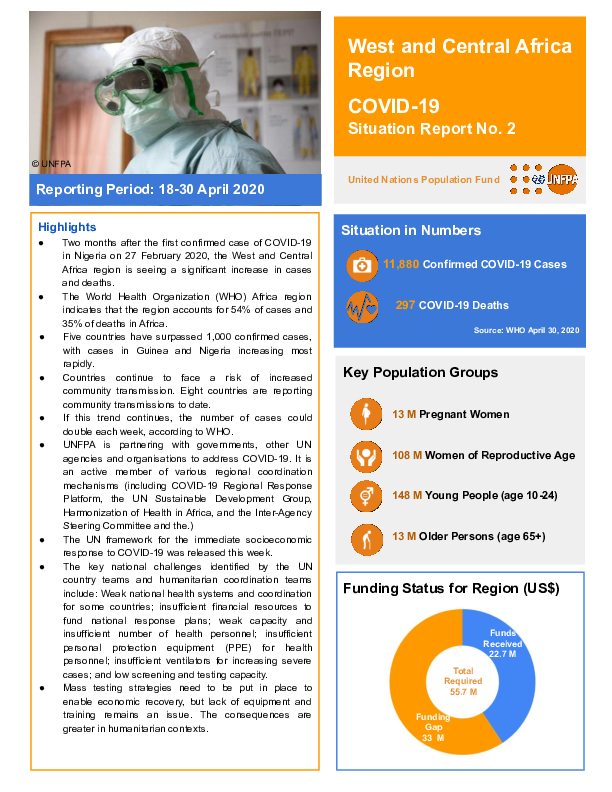
COVID-19 Situation Report No. 2 for UNFPA West and Central Africa
"The UNFPA response in the region aligns with the UN framework for the immediate socioeconomic response to COVID-19, the 2030 Agenda, the 2020 WHO Global Strategic Preparedness and Response Plan, the Inter-Agency Standing Committee Global Humanitarian Response Plan and the UNFPA COVID-19 Global Response Plan."
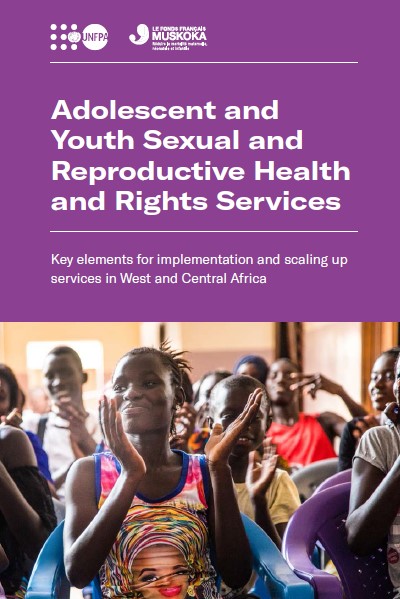
Adolescent and Youth Sexual and Reproductive Health and Rights Services
In West and Central Africa, 64 per cent of the population is below the age of 24 years.1 If this population were educated, healthy and employed, the region could benefit from the demographic dividend. However, one of the major obstacles to capturing the demographic dividend is the sexual and reproductive health and rights (SRHR) of adolescents and youth2 in the region, which is characterized by high rates of adolescent pregnancies and a high proportion of unmet family planning needs.
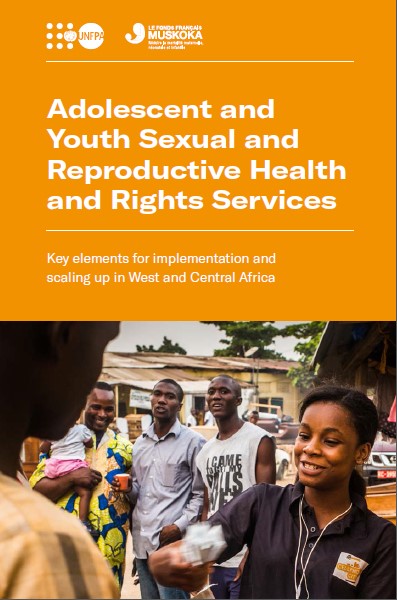
Adolescent and Youth Sexual and Reproductive Health and Rights Services
This regional report entitled “Adolescent and Youth Sexual and Reproductive Health and Rights Services - Key elements for implementation and scaling up in West and Central Africa” is complementary to the previous regional report on Comprehensive Sexuality Education (CSE) and documents, through concrete examples from four West African countries (Benin, Côte d’Ivoire, Senegal and Togo), highlighting promising practices, lessons learnt, and proposing key recommendations to be shared with all countries in the region.
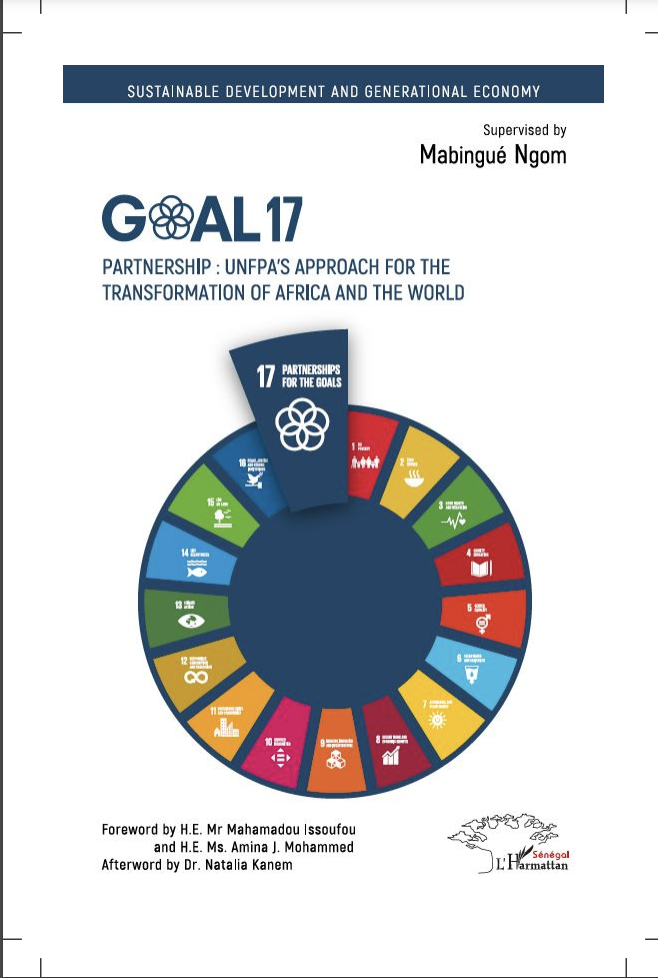
Goal17: Partnership: UNFPA'S Approach for the transformation of Africa and the World
This publication, “GOAL 17: Partnership: UNFPA’s approach for the transformation of Africa and the world,” details UNFPA’s strategy. It aims to draw on the regional office’s experience and to highlight the various dimensions of partnership, to show how this can be a successful strategy. In its 50 years of work, UNFPA, which has always considered partnership to be a lever for strategic action, has learned great lessons. For example, in 2013, UNFPA committed to promoting South-South cooperation to achieve the MDGs.11 Poor performance in West and Central Africa led UNFPA to focus on developing partnerships to accelerate progress, even before the adoption of the SDGs in 2015.
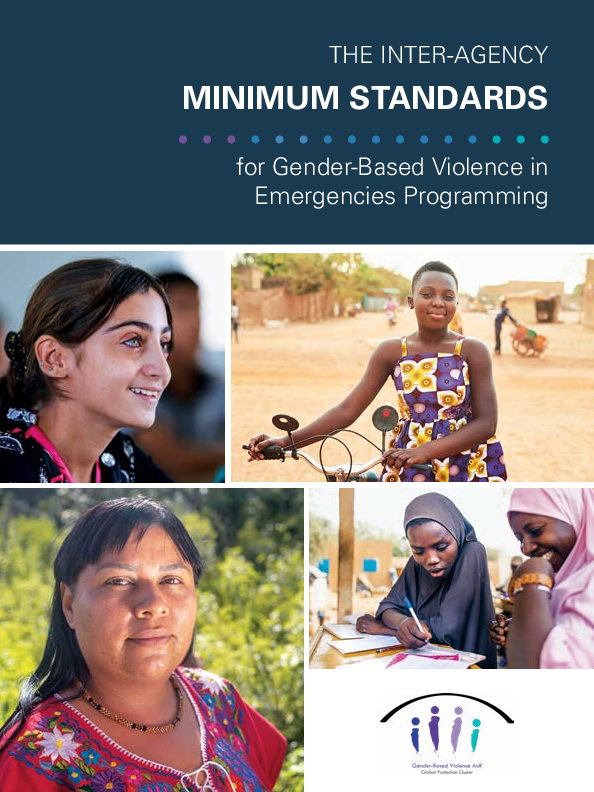
The Inter-Agency Minimum Standards for Gender-Based Violence in Emergencies Programming
Gender-based violence is a horrifying reality and human rights violation for women and girls globally. During emergencies, the risk of violence, exploitation and abuse is heightened. Humanitarian actors have an ethical imperative to prevent and respond to gender-based violence.
This resource presents 16 Minimum Standards for the prevention of and response to gender-based violence in emergencies. As a whole, the 16 Minimum Standards define what agencies working on specialized gender-based violence programming need to achieve to prevent and respond to gender-based violence, and deliver multisectoral services. The objective of the Minimum Standards is to establish a common understanding of what constitutes minimum prevention and response programming in emergencies.
Each Standard in this resource represents common agreement on what needs to be achieved for that specific programmatic element to be of adequate quality. The standards are universal; they are relevant for all emergency contexts.
ICPD UNFPA WCARO PHOTO BOOK
This book of photo essays highlights some of the work that UNFPA’s West and Central Africa regional office has been engaged since it was set up in 2013 in Dakar, Senegal.
It is also in celebration of two milestones of immense importance globally as well as in Africa the 50th anniversary of the setting up of the United Nations Population Fund (UNFPA) and the 25th anniversary of the International Conference on Population and Development (ICPD).
Foreword by
Mabingué Ngom,
Director of UNFPA West and
Central Africa Regional Office (WCARO)
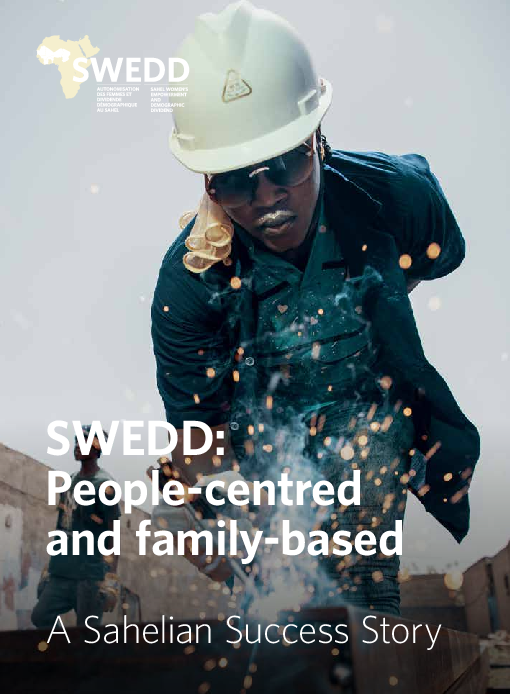
SWEDD: People-centred and family-based
“Young people make up 75 per cent of the population SWEDD countries which represent a huge potential of assets for the private sector. Investing in human capital will determine whether or not Africa is able to acquire human capital that is commensurate with its desire for emergence.”
Mabingué Ngom, UNFPA Regional Director for West and Central Africa Office - WCARO
SWEDD is a regional project that unites these six western and central African countries with the main objective of “accelerating the demographic transition, to spur the demographic dividend, and to reduce gender inequality in the Sahel region”. SWEDD was officially launched on November 2nd, 2015 in Niger’s capital city of Niamey. Niger also happens to chairs the Regional Steering Committee. When it was initiated SWEDD had an operational time frame that was scheduled to run until the end of 2018. However, owing to an impressive list of achievements on all of SWEDD’s intervention strategies in the region the 2018 time scale has been extended to 2023 and neighbouring states have expressed their interest to join the inspiring and transformational SWEDD initiative.

UNFPA WCARO Delivery Unit concept note
UNFPA WCAR’s work in these past few years have attracted more funding thus giving the organization the ability to have a bigger impact on women, adolescent and young people in the region and to adopt ‘new ways of working’ to be more efficient and effective.
This increase in funding created a greater demand and expectation for the region to strengthen its capacity to absorb new grants and implement innovative programmes while accelerating the delivery of results of existing programmes. This cannot be achieved without innovative mechanisms for anticipating, preventing and quickly addressing the bottlenecks and risks hindering programme delivery.
In addition to strengthening its Results Based Management (RBM) culture, WCARO has also been reflecting on new ways of working that are more geared towards programme integration, better coordinated funding arrangements and resource allocation, and timely and better support to country offices. This goal cannot be achieved without managing risks and anticipating challenges that could affect operations and programme implementation.
It is against this background that UNFPA WCARO is setting up a Delivery Unit with the sole objective of helping managers deliver planned results in RIAP and country programmes to support the Strategic Plan 2018-2021 three transformative goals of: 1) end preventable maternal deaths; 2) end unmet need for family planning; and 3) end gender-based violence and harmful practices.
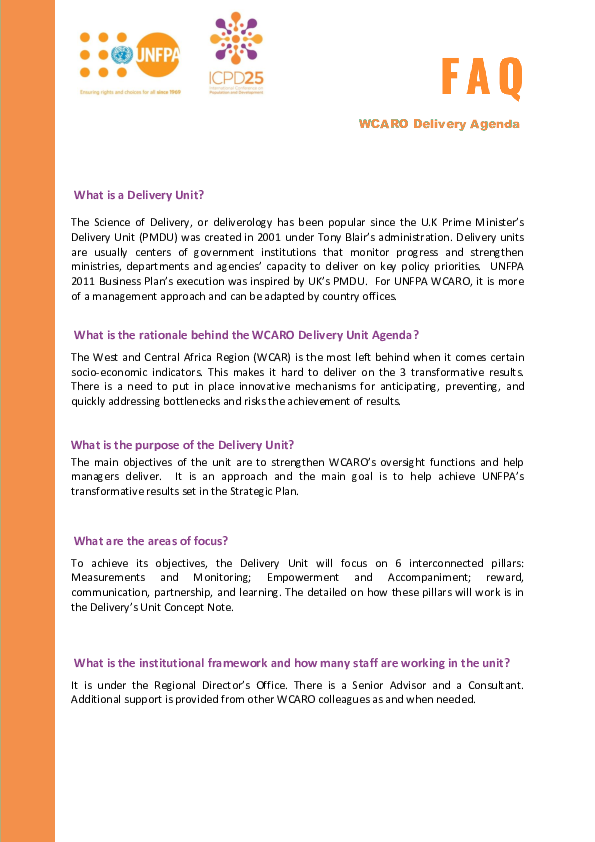
WCARO Delivery Agenda
The Science of Delivery, or deliverology has been popular since the U.K Prime Minister’s Delivery Unit (PMDU) was created in 2001 under Tony Blair’s administration. Delivery units are usually centers of government institutions that monitor progress and strengthen ministries, departments and agencies’ capacity to deliver on key policy priorities. UNFPA 2011 Business Plan’s execution was inspired by UK’s PMDU. For UNFPA WCARO, it is more of a management approach and can be adapted by country offices.